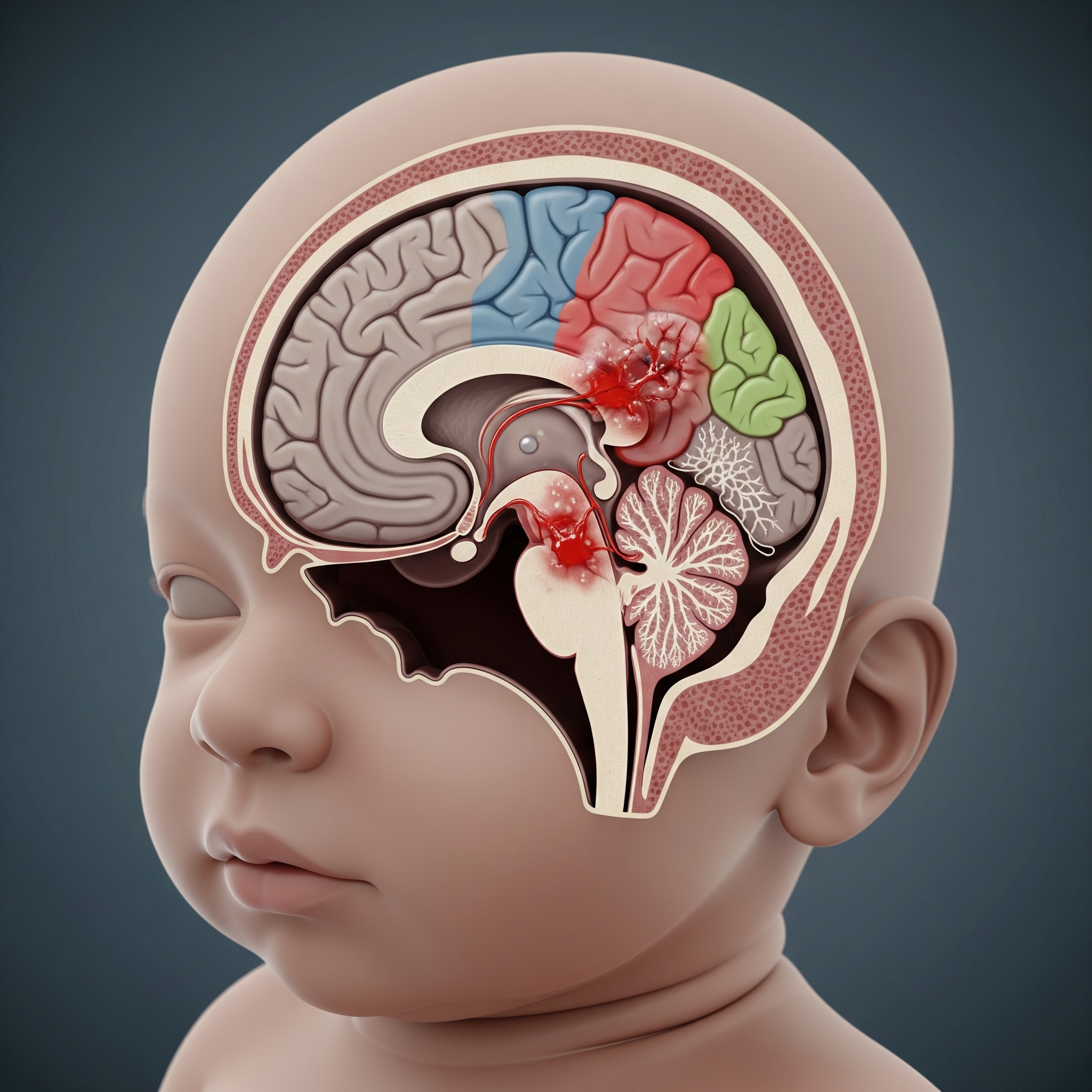A Brain Injury at Birth is among the most severe and devastating birth complications a family can face. Such an injury can lead to lifelong cognitive, physical, and developmental impairments, profoundly altering a child’s future. Understanding the common causes and types of Brain Injury at Birth, as well as the available legal recourse when negligence is suspected, is crucial for families seeking answers and support. This article provides essential information for those navigating the aftermath of this challenging diagnosis.
What is Brain Injury at Birth?
A Brain Injury at Birth refers to any damage to the brain that occurs during pregnancy, labor, delivery, or immediately after birth. While some brain injuries can be unavoidable, many are preventable and occur due to complications that were mismanaged, undiagnosed, or improperly treated by medical professionals. This distinction is critical for families considering a birth injury claim.
Common Causes
Several factors and medical errors can lead to a Brain Injury at Birth:
1. Oxygen Deprivation (Hypoxia or Asphyxia)
- Hypoxic-Ischemic Encephalopathy (HIE): This is the most common cause of Brain Injury at Birth. It occurs when the brain is deprived of adequate oxygen and blood flow for a prolonged period. This can happen due to:
- Umbilical Cord Issues: Compression, prolapse, or knots in the umbilical cord.
- Placental Problems: Placental abruption or placenta previa, reducing oxygen supply.
- Maternal Blood Pressure: Severely low or high blood pressure in the mother.
- Prolonged or Difficult Labor: If labor extends too long without intervention, or if contractions are too strong and frequent.
- Failure to Monitor Fetal Distress: Medical staff’s failure to recognize and respond to signs of fetal distress on monitoring strips is a frequent cause of preventable oxygen deprivation.
2. Physical Trauma During Delivery
- Improper Use of Delivery Tools: Misuse of forceps or vacuum extractors can cause skull fractures, brain bleeds, or other head trauma.
- Excessive Force: Applying too much force to the baby’s head or neck during a difficult delivery can lead to injuries.
- Failure to Perform Timely C-Section: Delays in performing a necessary Cesarean section when complications arise can lead to prolonged trauma or oxygen deprivation, resulting in Brain Injury at Birth.
3. Infections
- Maternal Infections: Untreated infections in the mother (e.g., Group B Strep, herpes, meningitis) can pass to the baby and cause brain inflammation or damage.
4. Untreated Jaundice
- Severe neonatal jaundice (hyperbilirubinemia) that goes untreated can lead to kernicterus, a type of Brain Injury at Birth causing cerebral palsy and other developmental issues.
Types of Brain Injury
The nature of the brain damage often defines the resulting condition. Common types of Brain Injury at Birth include:
- Hypoxic-Ischemic Encephalopathy (HIE): As mentioned, this is brain damage from lack of oxygen and blood flow. It can range in severity and often leads to cerebral palsy.
- Intracranial Hemorrhage: Bleeding within the skull, which can occur due to trauma, oxygen deprivation, or blood clotting disorders.
- Periventricular Leukomalacia (PVL): Damage to the white matter of the brain, often seen in premature infants, which can impair motor function.
Seeking Legal Recourse for Brain Injury
If your child suffered a Brain Injury at Birth and you suspect medical negligence played a role, you may have grounds for a legal claim. A birth injury lawsuit can seek compensation to cover the immense lifelong costs associated with caring for a child with a severe brain injury, including extensive medical treatments, therapies, specialized equipment, and Life Care Planning Birth Injury survivors often require.
An experienced birth injury lawyer will investigate your case by thoroughly reviewing Medical Records Birth Injury Claim elements and consulting with Expert Witnesses Birth Injury Lawsuits demand. They will determine if the Brain Injury was preventable and if the standard of care was breached.
If you want to call us and book a free call to discuss Brain Injury at Birth and your legal options, contact here: Contact Trusted Birth Injury Lawyers | CPFamilyHelp
Frequently Asked Questions (FAQ) about Brain Injury at Birth
Is a Brain Injury at Birth always visible immediately?
Not always. While some signs may be immediate (e.g., seizures, low Apgar scores), the full extent of a Brain Injury at Birth might not become apparent until developmental milestones are missed later in infancy or childhood.
Can early intervention help a child with Brain Injury at Birth?
Yes, early intervention and consistent therapy are crucial. They can significantly improve outcomes, mitigate the impact of the Brain Injury at Birth, and enhance the child’s development by leveraging brain plasticity.
What role do Apgar scores play in a Brain Injury at Birth claim?
Low Apgar scores (taken at 1 and 5 minutes after birth) can be an indicator of oxygen deprivation or trauma at birth, and thus are important evidence in a Brain Injury at Birth claim, especially concerning the statute of limitations for birth injury.
How does a Brain Injury at Birth differ from cerebral palsy?
Cerebral palsy is a result of brain damage, often a Brain Injury at Birth. So, a brain injury is the cause, and cerebral palsy can be one of the resulting conditions affecting movement and posture.
What kind of compensation can be sought for a Brain Injury at Birth?
Compensation for a Brain Injury at Birth can include past and future medical expenses, therapeutic costs, specialized equipment, lost earning capacity, pain and suffering, and the cost of Life Care Planning Birth Injury survivors need.





